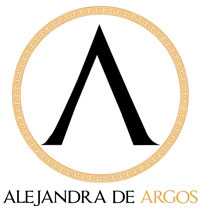"The most intelligent and most important poet our country has produced this century has died, in hospital in Rome, as a result of the burns she suffered, apparently, at home in her bath according to the Italian authorities' investigations. I have travelled with her and during our travels, she shared many of her philosophical opinions as well as her concerns about the way the world was heading and about the course of history, both of which frightened her throughout her whole life." With these words, Thomas Bernhard summed up the death of his dear friend, Ingeborg Bachmann.
Bachmann died on the 5th May 1973 of burns sustained during a fire at her house in Rome. She had chosen to settle there definitively in 1969 for its Southern European warmth and sunlight.
|
Author: Maira Herrero,
MA in Philosophy.
|
 |
"The most intelligent and most important poet our country has produced this century has died, in hospital in Rome, as a result of the burns she suffered, apparently, at home in her bath according to the Italian authorities' investigations. I have travelled with her and during our travels, she shared many of her philosophical opinions as well as her concerns about the way the world was heading and about the course of history, both of which frightened her throughout her whole life." With these words, Thomas Bernhard summed up the death of his dear friend, Ingeborg Bachmann.
Bachmann died on the 5th May 1973 of burns sustained during a fire at her house in Rome. She had chosen to settle there definitively in 1969 for its Southern European warmth and sunlight. She was known to drink and use drugs and fire was a recurring metaphor in much of her writing. Her friends were not altogether surprised at this tragic ending to an eventful life full of successes, suffering and sadness. She was 47.
Philosophy, literature and language make up the poetic and narrative work of this highly intelligent, academically accomplished, elegant and tremendously attractive Austrian, born in 1926 in Klagenfurt, in the Austrian state of Carinthia, near the Slovenian border. The Second World War forced her to abandon her home and embark on a kind of pilgrimage to escape the destruction and barbarity that was ravishing her country. Those events marked her life and her work and would always serve as a literary resource for her to speak of the identity of a world where borders simultaneously make divisions and blur them, leaving in limbo all that she had previously believed in.
Her heightened sensitivity to the world enabled her to mould images or reflections in very few words and to move from the grandest ideas to the tiniest of details. Always faithful to her intellectual convictions, she sought out the most authentic form of expression through language. As she herself said: Poetry comes with the words. I seek language in its purest form and reject "worn-out" words to pinpoint the truth. Once again, it is the language that scaffolds the text.

Despite being one of the most important, cult authors of the second half of 20th century Europe, an icon of German literature and the "first lady" of the Group 47 movement, her work has yet to enjoy the renown it deserves in Spain. Three Paths To The Lake is, therefore, an excellent opportunity to get to know this exceptional author who excelled in all the literary genres including poetry, novel, essay. The story forms part of a 1972 book of five stories collectively titled Simultan.
It is one of those short stories that can be re-read with renewed pleasure time and time again and, on each occasion, previously unseen meanings are always to be found. In closed, topographic and autobiographical prose, Bachmann's story features the protagonist's annual visit to her elderly father's house. There, the successful photojournalist Elisabeth Matrei comes face to face with "yesterday's world", the routines of simple, small town life and the passing of time, all within an atmosphere of claustrophobia in which Elisabeth's thoughts become gradually more and more entangled and only ever interrupted by her frustrated attempts to reach the lake by means of some long-since disapperared paths. Bachmann uses the novel as a search through space and time of her own existence, like a map full of lost references that gradually return to the present. The "I" that used to be, and had disappeared long ago, is brought back and up-close in order to reflect on the role of women in current society as well as others' perceptions of this new status seeminglygranted to the female sex in their struggle for equality. Love, lovers, family relationships and all that the surname Trotta suggests with regard to Austrian history and literature round off the story in an explicit reference to Josep Roth.

Ingeborg Bachmann was deeply committed to engagement with her times and the novel echoes the end of colonialism, referencing The Algerian and Vietnam Wars in an attempt to reach an understanding of the complexities of the world she and we live in. It is also worth mentioning the artist Anselm Kiefer who incorporated many passages from Bachmann's writing into his paintings as a means of drawing attention to the horror of conflict.
It is only by dint of having lived her life to the full and being a genius at language that Bachmann was able to condense into such a short novel so many questions about the constant contradictions inherent in our very existence and to perturb us enough not to remain impassive when faced with so much falsehood.

(Translated from the Spanish by Shauna Devlin)
- Three Paths To The Lake by Ingeborg Bachmann - - Alejandra de Argos -








